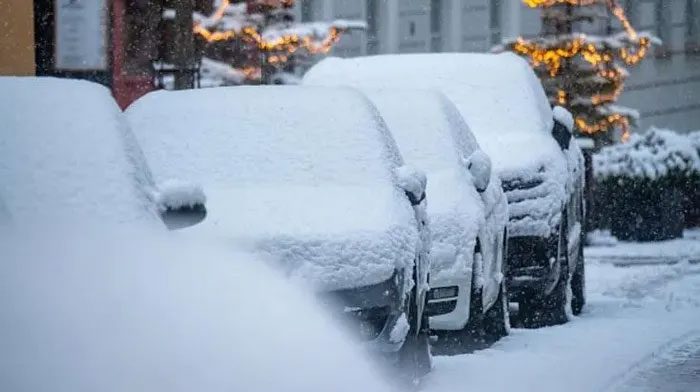The global warming situation and the impact of the El Niño weather phenomenon are the main reasons for the forecast of a warmer winter.
This year, the El Niño weather phenomenon has returned, bringing an exceptionally hot summer, a series of extreme weather events, and the increasingly apparent effects of global warming. As a result, experts are predicting that this winter could break records and become the warmest winter ever recorded.
B commenting to Anadolu Agency (Turkey) on November 19, climate scientist Mathew Barlow stated that globally, December 2023, January, and February 2024 are likely to be record warm months.

Global warming and the El Niño effect are making this winter warmer. (Illustrative image: CNBC).
According to Barlow, this will be the hottest period ever recorded for the entire Earth. He explained that the reason for the particularly warm winter is due to global warming and the El Niño effect.
Professor Barlow, a climate scientist at the University of Massachusetts Lowell in the United States, emphasized that there is a general trend of global warming, with the El Niño phenomenon exacerbating this situation.
He further stated that record-breaking years for global temperatures are mostly years when the El Niño phenomenon occurs, and in the upcoming period, average temperatures are expected to be warmer almost everywhere.
He noted that last October was the hottest October ever recorded (month-to-month comparison). According to the European Union’s Copernicus Climate Change Agency, October 2023 was the warmest October globally in data records since 1940.
Professor Barlow also predicts that winters will shorten over time. “I think in most places, winters will be shorter. The coldest temperatures will start later and end a little earlier. This is a very consistent trend over time for most regions,” he said.
The climate scientist also forecasted a new record for average global surface temperatures, leading to more extreme weather events. With global warming, Barlow believes that extreme phenomena will continue to increase rapidly as seen this summer in the form of severe floods, droughts, and extreme heat.
He also noted that in addition to extreme heat events, there will also be extreme cold waves, although these will certainly occur less frequently due to climate change.
The United States has set several records for cold air this fall right after setting several records for heat. He stated: “This kind of extreme weather is increasing. Sometimes we see very warm temperatures, and then occasionally very cold temperatures.”
Despite geopolitical tensions around the world, Professor Barlow stressed that countries must continue their efforts to mitigate climate change.


















































